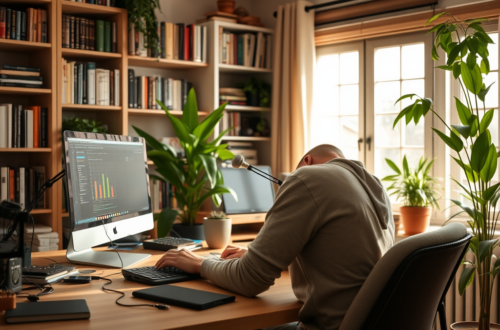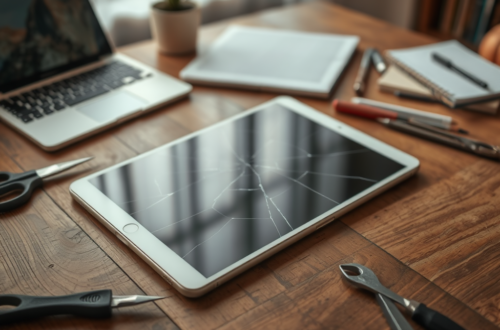Keeping your computer clean is not just a matter of aesthetics; it’s crucial for maintaining peak performance. For gamers and heavy users, a well-maintained computer can mean the difference between a smooth gaming experience and frustrating lag. As dust and debris accumulate, they inhibit airflow, leading to overheating and potential hardware failure. Over time, these issues can significantly shorten the lifespan of your components, costing you both time and money. Regular cleaning can alleviate these problems, ensuring that your machine operates as efficiently as possible. This guide presents actionable tips to help you clean your computer properly, tailored specifically for those who rely on their machines for heavy use and gaming.
Understanding the Importance of Regular Computer Cleaning

Establishing a routine for computer cleaning can be a daunting thought, but it’s important to consider the benefits. Regular cleaning not only enhances system performance but also extends your computer’s longevity. Dust buildup can lead to overheating, which is particularly problematic during extensive gaming sessions. Fans work harder when they’re clogged with dust, increasing noise levels and decreasing efficiency. When your computer’s internals are clean, it allows thermal management to function optimally, keeping temperatures down and performance high. Additionally, a clean computer means fewer viruses and malware, as dust and grime can sometimes harbor particles that attract unwanted pathogens.
Essential Tools for Cleaning Your Computer

Before embarking on your cleaning journey, it’s essential to have the right tools at your disposal. Below are some indispensable items that every gamer should consider when cleaning their computer:
- Compressed Air Canister: Ideal for blowing dust out from hard-to-reach areas.
- Microfiber Cloth: Perfect for cleaning screens without scratching them.
- Soft-Bristle Brush: Useful for loosening dust from components.
- Isopropyl Alcohol: Effective for disinfecting surfaces and removing sticky residues.
Choosing the Right Cleaning Products
While gathering your tools, be mindful of the cleaning products you choose. It’s advisable to avoid abrasive cleaners that can damage electronic components. Instead, select products specifically designed for tech cleaning, ensuring that they don’t leave behind residues that could attract more dust. Opting for gentle, alcohol-based cleaners can help maintain the integrity of your screens and surfaces while still providing effective sanitation.
Step-by-Step Guide to Cleaning Your Computer
A systematic approach to cleaning your computer will yield the best results. Here’s a detailed breakdown of the steps involved:
Shut Down and Unplug Your Computer
Your first step should always be to turn off your computer and unplug it from the wall. This not only prevents the risk of electrical shock but also safeguards your components from any accidental damage during the cleaning process. It’s a simple yet crucial step that should never be overlooked. Once unplugged, allow your computer to cool down for about 15 minutes if it was in use recently.
Opening Your Computer Case
Next, you will need to carefully open your computer case. This step is critical to access the internal components for thorough cleaning. Be sure to follow your manufacturer’s guidelines to avoid damaging any parts. Most cases will have screws or latches that can be easily removed, allowing access to the motherboard, GPU, and fans.
| Component | Cleaning Tips |
|---|---|
| Fans | Use compressed air to blow out dust. Avoid spinning the fan while cleaning. |
| CPU & GPU | Clean with a soft-bristle brush and ensure that thermal paste is intact. |
| Power Supply | Use compressed air from the outside. Never open the power supply unit. |
Dusting Internal Components
Once access has been gained, it’s time to start dusting the internal components. Employ your compressed air along with the soft-bristle brush to gently clean heat sinks, CPU, GPU, and fans. This step can make a significant difference in your system’s cooling efficiency. It’s essential to take your time and ensure no dust is left behind, as even small amounts can affect performance and temperature regulation.
Cleaning External Surfaces
Don’t overlook the exterior of your computer! A clean outside complements the efficiency of a clean inside. Utilize a microfiber cloth that’s lightly dampened with isopropyl alcohol to wipe down the surface of your computer, keyboard, and monitor. This not only improves aesthetics but also enhances your overall computing experience.
Reassembling Your Computer
After you’ve cleaned all components, it’s time to carefully close your computer case. Make sure everything is dry before reassembling, then reconnect all cables and peripherals, ensuring that nothing is left unhooked. Once everything is back in place, you can plug your computer in and turn it back on. It should run smoother than before, provided that no components were damaged during cleaning.
Tips for Preventing Future Build-up
To maintain the performance you’ve just achieved, it’s crucial to implement preventive measures. Here are key tips to help you keep your system clean and dust-free:
- Use Dust Filters: Installing filters on vents can help minimize dust ingress.
- Keep Your Workspace Clean: Regular cleaning of your workspace reduces outdoor particles from settling on your computer.
- Establish a Regular Maintenance Schedule: Engage in a routine cleaning every few months to ensure ongoing cleanliness.
Conclusion
In conclusion, cleaning your computer is an essential undertaking for gamers and heavy users alike. By following the structured cleaning guide in this article, you’ll not only enhance the performance and longevity of your machine but also create a better overall experience while gaming or using resource-intensive applications. Remember, regular maintenance can save you from unexpected issues down the line. A cleaner computer means a happier user!
FAQ
- How often should I clean my computer? Aim for at least every three to six months, but more frequent cleaning may be needed if you use your computer heavily or in a dusty environment.
- Can I use a vacuum cleaner to clean my computer? It’s not recommended, as vacuums can create static electricity that may harm sensitive components.
- Is it safe to use compressed air? Yes, but make sure to hold the can upright to avoid any liquid propellant from escaping and potentially damaging your components.
- What should I avoid when cleaning? Avoid using paper towels, rough fabrics, and any harsh chemicals that could damage your device.
- What are the signs that my computer needs cleaning? Common signs include unusual noise from fans, increased temperature, and slower performance.





